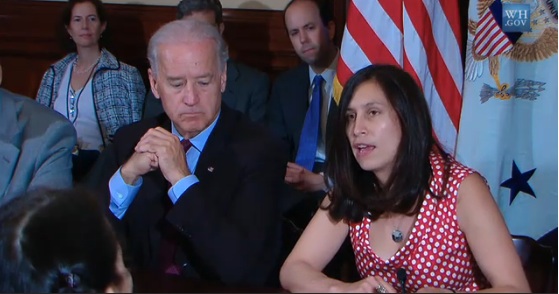Intellectual Property Czar Promises Transparency Amidst Controversy Over ‘Secretive’ Trade Negotiations
SAN FRANCISCO, June, 23, 2010 – A White House official in charge of coordinating the US government’s enforcement of intellectual property rights on Tuesday pledged openness in the face of mounting criticism that the Obama administration is engaging in a secretive negotiating process with some of its

"We will be transparent," said Victoria Espinel, the Obama administration's intellectual property czar at a Tuesday press conference in Washington, D.C. unveiling the administration's government-wide enforcement efforts.
SAN FRANCISCO, June, 23, 2010 – A White House official in charge of coordinating the US government’s enforcement of intellectual property rights on Tuesday pledged openness in the face of mounting criticism that the Obama administration is engaging in a secretive negotiating process with some of its trading partners as they discuss ways to more strictly enforce those rights both online and at their borders.
“We will be transparent,” said Victoria Espinel, the Obama Administration’s intellectual property enforcement coordinator, a White House post created by Congress in 2008. “We will ensure that the public has good information about our policies and our actions.”
Espinel made the comment at a Tuesday unveiling of the Obama administration’s government-wide efforts to improve the way it protects intellectual property rights. The report can be downloaded here.
Transparency was action item number two out of a six-item action agenda. Other items included a pledge by the government not to use infringing products, to improve enforcement coordination both domestically and internationally, to secure supply chains, and to improve data-collection and dissemination efforts to improve enforcement.
When asked about the apparent discrepancy between Tuesday’s comment and the administration’s historical approach to ACTA, Jean Weinberg, an Office of Management and Budget press secretary said:
“As the Administration’s strategy says, we support transparency in intellectual property enforcement policy-making and international negotiations. USTR released the draft bracketed text of ACTA on April 21st.”
Both the Bush and Obama administrations have been under fire from public interest advocates and academics who have expressed concern over what they have characterized as a secretive negotiation process between the United States Trade Representative and its foreign counterparts over the Anti-Counterfeiting Trade Agreement.
The next round of those four-day negotiations is scheduled to take place next Monday in Lucerne, Switzerland.
Trade negotiations because of their nature are often low-profile, but this particular set of discussions has become controversial because the intellectual property enforcement regimes of each participating country are different from each others’ and the negotiators’ attempts to bring some parity to them without ratification through a domestic legislative process has raised alarm among the public interest advocates and some constitutional law professors in the United States.
Tech companies’ lawyers, for their part, are worried about the apparent backdoor attempts to thrust more responsibility for enforcement into their companies’ hands, an issue that they’ve negotiated and fought off repeatedly for more than a decade.
The Obama administration in its Tuesday report put the onus on industry to work it out among themselves while the administration itself promised to focus on criminal enforcement.
“The Administration believes that it is essential for the private sector, including content owners, internet service providers, advertising brokers, payment processors and search engines, to work collaboratively, consistent with antitrust laws, to address activity that has a negative economic impact and undermines U.S. businesses, and to seek practical and efficient solutions to address infringement,” read the report. “This should be achieved through carefully crafted and balanced agreements.”
BroadbandBreakfast.com is hosting a panel discussion about the Anti-Counterfeiting Trade Agreement July 13th at Clyde’s of Gallery Place in Washington, DC. The event is free and open to the public. Join us!








Member discussion